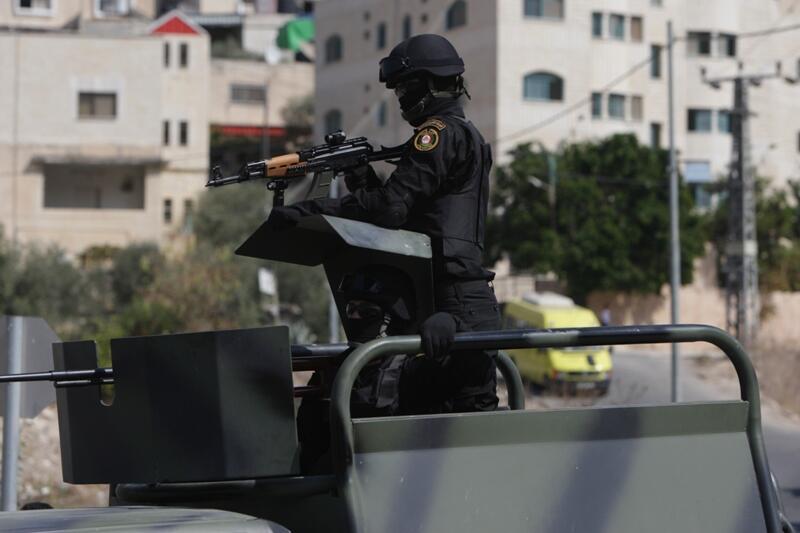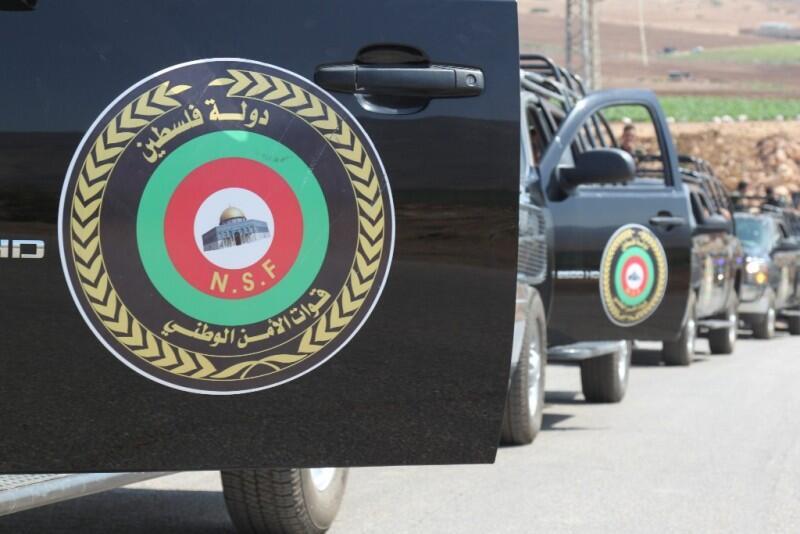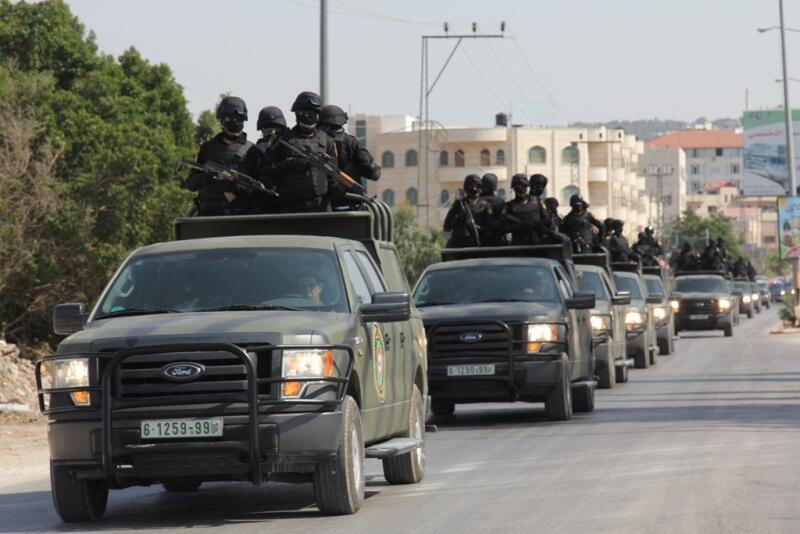Palestinian President Mahmoud Abbas said on Sunday that anyone in his security forces who refuses to take part in the counter-terror operation the PA was conducting in Jenin would be fired.
The West Bank city of Jenin has become a nerve center for terrorist activity, where armed groups operate with impunity. But now, the Palestinian Authority’s elite 101st Unit is rewriting the rules of engagement. With its sights set on restoring order and intends to dismantle the terror networks, reclaim refugee camps, and reassert authority.
4 View gallery


Palestinian President Mahmoud Abbas, PA's 101 unit
(Photo: AP, Raneen Sawafta / Reuters)
Comprising of 2,000 highly trained troops, the 101st Unit is a force to be reckoned with. Its members—young, academically accomplished, and physically fit—are rigorously trained by American and Canadian specialists. "This is an elite unit that trains abroad, in various countries," a senior Palestinian Authority official explained to Ynet. "It’s a source of Palestinian pride, defined by strength, courage, and respect for the population."
Working in close coordination with Palestinian intelligence services, the unit is tasked with identifying "lawbreakers," a term that encompasses everything from drug dealers and arms traffickers to terrorists targeting both Palestinians and Israelis. Jenin’s refugee camp, long seen as a lawless enclave and a hub for terrorist activity, now finds itself in the crosshairs of the Unit’s precision operations.
Leadership in the shadows
The 101st Unit operates under the command of Major General Nidal Abu Dukhan, a towering figure in Palestinian security circles. Renowned for his academic and military training across multiple countries, Abu Dukhan has earned the respect of Palestinian President Mahmoud Abbas and even served as Yasser Arafat’s bodyguard. His leadership is as strategic as it is symbolic, embodying the authority’s determination to restore order in its restive territories.
Despite initial fears of widespread unrest, the Palestinian Authority has reported minimal public resistance to the unit’s activities within the camps. "We thought the population would protect the lawbreakers among them, but that didn’t happen," a senior official admitted. "This shows that the residents are tired of illegal activities and want order to return to the camps."
Symbolizing change
Palestinian Prime Minister Mohammad Mustafa recently visited Jenin to commend the ongoing operation. "The Jenin camp and other camps are symbols of our pride," he declared. "This is a commitment from the president and all of us. While these camps are national symbols, residents must be able to live in peace." He further emphasized, "We are working to restore security everywhere, which will bring positive outcomes for everyone—security and development for our people as we work toward an independent state."
Last night, the unit maintained control over the camps despite attempts to disrupt its operations in several locations across the West Bank. No significant disturbances were reported, further solidifying the operation's success.
The name "101st Unit" carries historical weight. It mirrors the legendary Israeli commando unit founded by Ariel Sharon in 1953, known for its daring reprisal operations against infiltrators from Jordan and Gaza. Among its storied actions were raids on the Al-Bureij refugee camp in Gaza and operations like “Silk Gloves,” where Meir Har-Zion led ground assaults deep into enemy territory. The symbolic adoption of this name by the Palestinian Authority is both bold and ironic, as it signals a new era of assertiveness.
The Assad effect: A war on terrorist strongholds
The 101st Unit’s campaign, known as "Homeland Defense," has unfolded against a backdrop of shifting regional dynamics. Israeli intelligence has noted a marked increase in Palestinian Authority activity against militant groups in the northern West Bank, particularly in Jenin. The operation, now in its seventh day, includes encircling the Jenin refugee camp and conducting raids in areas like Tulkarm.
"This is equivalent to a major military campaign on our scale—something we haven’t seen in years," a senior Israeli security source told Ynet. "The humiliating trigger was the theft of Palestinian Authority vehicles by armed militants." The operation has deployed snipers, sharpshooters, and armored vehicles, leveraging strong intelligence to guide its actions.
Despite early heavy firefights and the use of a car bomb by militants, the unit’s efforts have yet to uncover all hidden explosive devices. After setting up a command center in the Jibrayat neighborhood overlooking the camp, the unit launched its ground assault at 5:00 AM, engaging in intense exchanges of fire. So far, one senior militant commander has been killed, and injuries have been reported on both sides. Significant arrests of wanted men remain elusive, but the operation is expected to continue for several days.
A wake-up call from Syria
The Palestinian Authority’s determination to act has been fueled, in part, by the collapse of the Syrian regime. "They saw how a handful of armed groups with pickup trucks, AK-47s, and machine guns quickly and easily seized control of the government," an Israeli military source observed. "What’s to stop militant groups from doing the same in Ramallah?"
Firefights in the West Bank
The Israeli defense establishment has urged Palestinian forces to adopt a more proactive approach, following the success of last year’s "Nablus Model." There, terrorist groups were suppressed through a combination of Israeli military action and the subsequent reassertion of Palestinian Authority control over the city’s Kasbah and refugee camps.
The battle for Jenin highlights the cyclical nature of counterterrorism. "You kill ten militants in a place like the Jenin refugee camp, and ten new young recruits replace them immediately," one security source remarked. Members of the 101st Unit have reportedly faced children as young as eight throwing explosives at them during the past week.
Get the Ynetnews app on your smartphone: Google Play: https://bit.ly/4eJ37pE | Apple App Store: https://bit.ly/3ZL7iNv
Despite these challenges, the unit’s willingness to enter sensitive areas—such as the city’s hospital, often used as a refuge by militants—marks a significant shift. Israeli forces have historically avoided such operations to prevent being accused of targeting Palestinian medical facilities.
For the 101st Unit, the path ahead is fraught with complexity. But in their campaign to reclaim Jenin and other militant strongholds, they are forging a new narrative—one of resilience, strategy, and the uncompromising pursuit of order in one of the most turbulent regions of the West Bank.
First published: 23:00, 12.15.24







